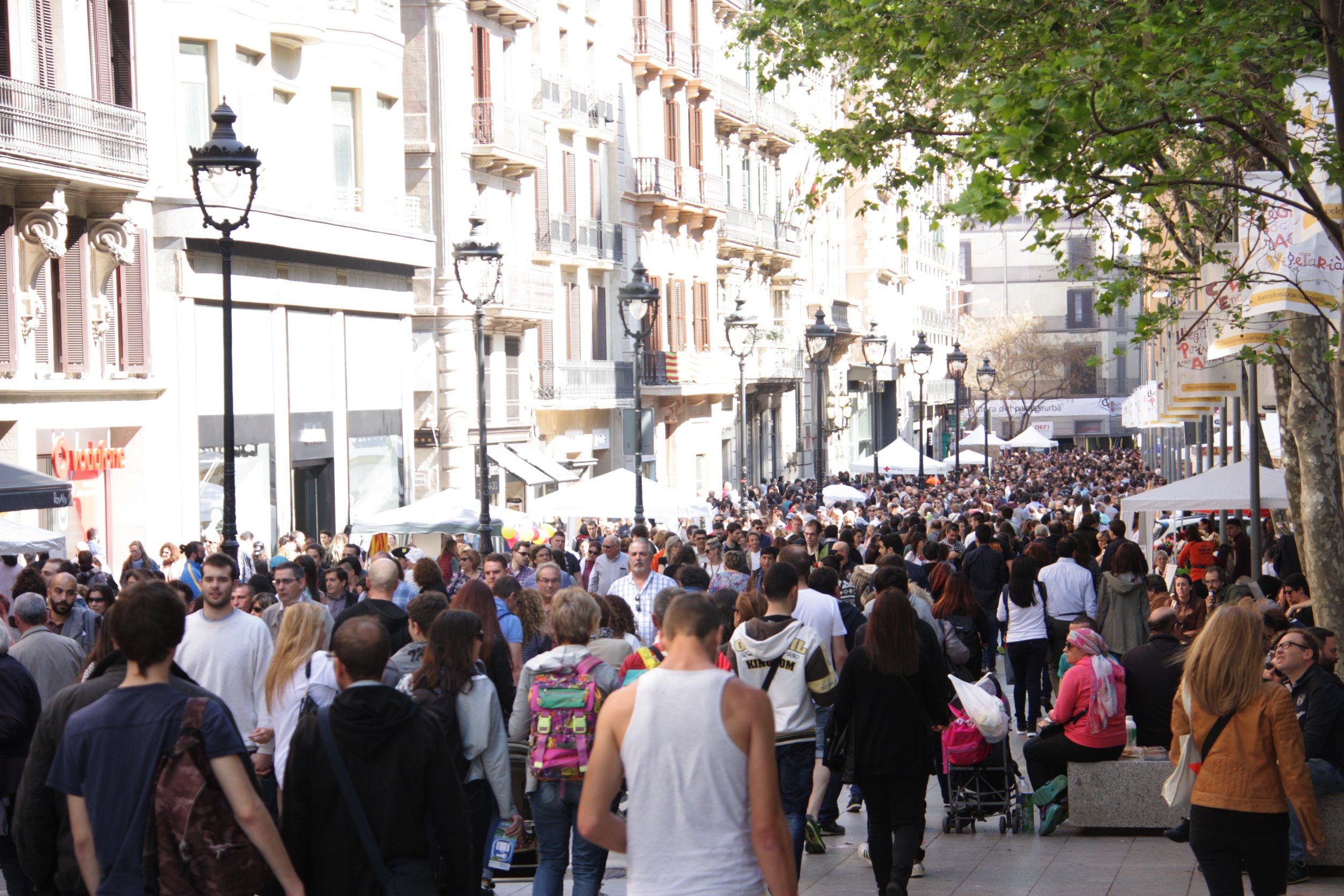A period of growth has ended. The pandemic has had a major impact on the demographics of Barcelona and the city's population has fallen for the first time in five years, as revealed by the statistics of the padró municipal, the city's register of residents, on January 1st, 2021, presented in a new report published by the city hall's Municipal Data Office (OMD). Mortality has skyrocketed, births have fallen and migratory flows have slowed.
Specifically, Barcelona lost 6,200 people in a year. The number of people registered as residents of the Catalan capital on January 1st, 2021 stood at 1,660,314 citizens, 0.4% less than a year before. Thus, a five-year period of steady growth has ended and there is a downturn in the population statistics for the first time since January 1st, 2015. However, it must be added that last year's total was the highest figure in the last thirty years and the new figure is a relatively small step down from that.
Mortality, highest since Civil War
According to the data released by the city council, the decline in population during 2020 comes mainly from the increase in mortality. A peak in the figures for those dying in the city has been recorded, and it can be attributed to the Covid-19 pandemic, with 18,968 deaths (31.7% more than the previous year). The average in recent years has been 15,142 deaths a year, which means that in 2020 there was an excess of 4,305 deaths.
The absolute peak corresponds to the months of March and April, during the first wave of the pandemic. Not since the first half of the twentieth century have so many people died in the city in a year: the only years when Barcelona has registered more death were those of the 1936-39 Civil War (a peak of around 28,000 deaths a year) and the 1919 flu pandemic (22,800).
Deaths recorded in the city of Barcelona by months (light green = average 2000-2009, yellow = average 2010-2019, blue = 2020)
Pandemic hits the birth rate
The birth rate has also dropped in the most recent statistics, falling below 12,000 births to register the second lowest value in the last fifty years. Specifically, after a period of increase, births returned to the downward trend in 2019 and fell by 6.4%, with the 2020 figure of 11,753 babies born in the city. Examined on a month-by-month basis, the fall in comparison with 2019 figures is most pronounced in the month of December 2020, suggesting the impact of the onset of the pandemic, nine months previously in March.
Births recorded in the city of Barcelona by months (light green = average 2000-2009, yellow = average 2010-2019, blue = 2020)
Thus, in 2020 ,Barcelona recorded 18,968 deaths and 11,753 births. Although since 1985 the city has registered more deaths than births every year, 2020 deviated from the more or less stable trajectories that both deaths (around 15,000 per year) and births (an average of 13,500 per year) had followed.
Migration out of the city
Of course, to calculate the net population gain or loss of the city, migration must then factored in. Covid-19 pandemic also had effects on the migratory movements which had been determinant in the steady rise in Barcelona's population from 2016 to 2020. In 2020, Barcelona maintained a positive migratory balance in its municipal register (on the one hand, immigrants plus registration due to adminstrative omissions, on the other, emigrants plus registration expiry) of 1,492 people. But this net figure was almost 80% less than the average of the previous ten years. In the first half of 2020, both immigration and emigration fell to very low levels, and then recovered somewhat later in the year (especially emigration). Overall in 2020, immigration was 32.1% down on 2019, and emigration fell 22.4%.
In terms of the provinence and destination of these migrant movements, it should be noted that the UK has moved up to third place from the eighth it occupied in 2019, just before Brexit. In terms of emigration, there has been a notable burst of emigration by Barcelona resident to the rest of Catalonia. This was already a trend, rising by four points between 2016 and 2020, so that now, 69.8% of those who leave the city, are headed for new homes elsewhere in Catalonia.
According to the city council, coinciding with the pandemic was a qualitative change with the emigration of previous years: after the most severe phase of the confinement, emigration intensified and grew by 27% in the period June-December with the previous year. Thus, this period concentrated 72.8% of the annual movements.
Main image: Portal de l'Àngel in Barcelona, packed with people / ACN

